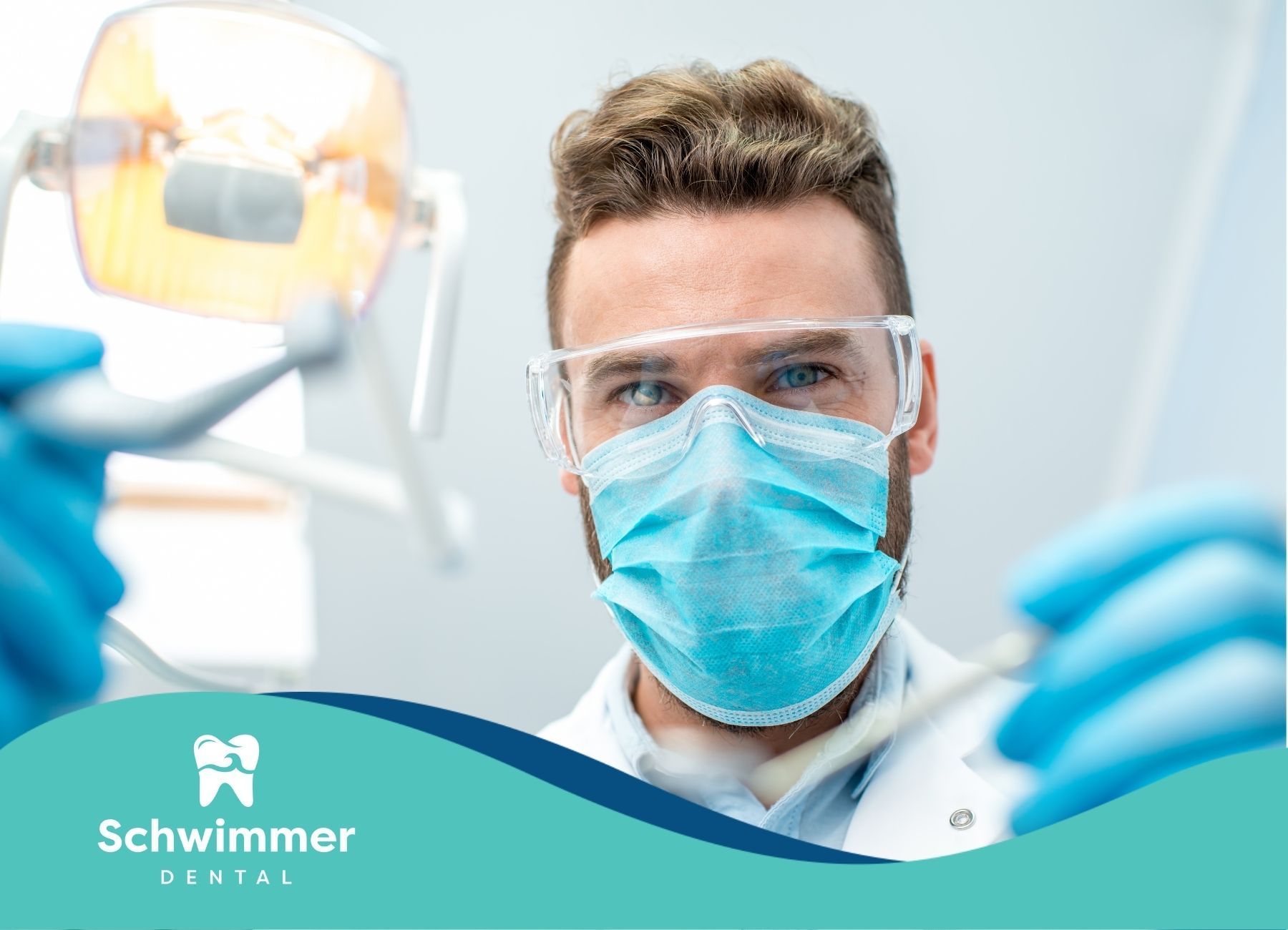Exercising After Dental Work: Safe Timelines and Recovery Tips
Dental work is a part of life for most people, whether it’s a routine filling, a crown, or more involved oral surgery. But if you’re committed to your fitness routine, you might be asking: “How soon can I get back to the gym?” or “Is it safe to workout after getting a cavity filled?”
This comprehensive guide unpacks everything you need to know about exercising after dental work—timelines, risks, safe activities, and how to protect your recovery while staying active.
Why Is Exercising After Dental Work a Concern?
Dental procedures, even minor ones, can temporarily affect your body’s ability to heal. Physical activity raises your blood pressure and heart rate, which can increase the risk of bleeding, swelling, or dislodging blood clots—especially after extractions or surgery. You may also feel groggy or less coordinated for anesthesia procedures, making injury more likely.
How Healing Works After Dental Procedures
Every dental procedure has a unique healing timeline:
- Routine cleanings and simple fillings: Minimal downtime; most people can resume normal activities quickly.
- Crowns,
root canals, and deep fillings: Mild discomfort or numbness may linger for several hours.
- Extractions, implants, and oral surgery: Healing involves blood clot formation and tissue repair over several days to weeks.
The most critical period is the first 24–72 hours, when your body forms a protective blood clot and begins tissue repair. Disrupting this process can lead to complications like dry socket, delayed healing, or infection.
Exercising After Dental Work: General Timelines
1. After a Cavity Filling
- Can I workout after getting a cavity filled?
Most people can return to light activity the same day, especially if only a small filling was placed. However, if you received dental anesthesia, wait until numbness wears off to avoid accidental injury.
- Lifting weights after tooth filling:
Light weights or gentle exercise are generally safe after a filling, but avoid heavy lifting for 24 hours if you feel any discomfort or lingering numbness.
2. After Dental Anesthesia
- Can you exercise after dental anesthesia?
Wait until the numbness fully subsides before exercising.
Dental anesthesia can affect your coordination and increase the risk of biting your cheek or tongue.
- Low-impact activities:
Walking or gentle stretching is safest until you’re fully alert and comfortable.
3. After Tooth Extraction or Oral Surgery
- How many days after dental surgery can I exercise?
- Avoid all strenuous activity for at least 24–48 hours after extractions or surgery.
- Light walking is typically safe after the first day, but avoid running, heavy lifting, or bending over.
- Wait 4–7 days before resuming moderate or high-intensity workouts, and only if you feel well and have no signs of bleeding or swelling.
- For wisdom teeth removal or complex surgery, wait at least a week before returning to weightlifting or contact sports.
4. After a Dental Crown
- Can I go to the gym after a dental crown?
- Light activity, such as walking or gentle stretching, can usually be resumed within 24 hours.
- Avoid high-intensity cardio or heavy lifting for the first 2–3 days if you feel any soreness or swelling.
- Listen to your body and stop if you feel discomfort at the crown site.
5. After a Root Canal
- How long should I wait to exercise after a root canal?
Most patients can resume light activity the next day, but avoid strenuous workouts for 48–72 hours to minimize swelling and discomfort.
Why Take It Slow? Risks of Exercising Too Soon
- Increased bleeding: Exercise raises blood pressure, which can cause bleeding at surgical sites.
- Dry socket: Vigorous activity after extraction can dislodge the blood clot, leading to severe pain and delayed healing.
- Swelling and discomfort: Strenuous movement can increase swelling and prolong recovery.
- Infection risk: Contact sports or swimming in unclean pools can introduce bacteria to healing tissues.
- Delayed healing: Overexertion diverts energy from the healing process.
Safe Activities to Try After Dental Work
- Walking: Gentle walking is encouraged as soon as you feel up to it, even within the first 24 hours for most procedures.
- Stretching and yoga: Light stretching or yoga is safe after the first day, but avoid poses that put your head below your heart (like downward dog) to reduce pressure at the surgical site.
- Low-intensity cycling: Stationary cycling at a gentle pace is usually safe after the initial recovery period.
- Swimming: Only after wounds have closed and with your dentist’s approval, to avoid infection.
When to Avoid Exercise
- If you have ongoing bleeding, swelling, pain, or fever.
- If you feel dizzy, lightheaded, or weak after dental anesthesia.
- If your dentist has advised additional rest based on your specific procedure or health history.
Signs You’re Exercising Too Soon
Stop exercising and contact your dentist if you notice:
- Bleeding at the surgical or treatment site
- Increased swelling or throbbing pain
- Trouble chewing, swallowing, or opening your mouth
- Fever or chills
- Dizziness or feeling faint
Lifting Weights After Tooth Filling or Extraction
- Lifting weights after tooth filling:
Light weights are usually safe after a
simple filling, but avoid clenching your jaw or straining the treated tooth for 24 hours.
- Can I lift weights 4 days after wisdom teeth removal?
Most people can resume light strength training after 4 days, but avoid heavy lifting or straining until at least a week post-surgery and only if you have no pain, swelling, or bleeding.
How to Ease Back Into Your Fitness Routine
- Start with low-impact activities (walking, stretching).
- Gradually increase intensity over several days.
- Avoid exercises that jar your head or increase blood flow to your mouth (running, jumping, heavy lifting) until fully healed.
- Stay hydrated and maintain good nutrition to support healing.
- Listen to your body—if you feel discomfort, stop and rest.
Tips for a Smooth Recovery
- Follow all post-procedure instructions from your dentist.
- Use ice packs as recommended to reduce swelling.
- Take prescribed medications as directed.
- Maintain excellent oral hygiene, but avoid brushing directly on surgical sites until cleared.
- Eat soft, nutritious foods and avoid hot or spicy items immediately after dental work.
How Schwimmer Dental Supports Your Recovery and Fitness Goals
At Schwimmer Dental in Point Pleasant, NJ, we know that your oral health is just one part of your overall well-being. Our team is committed to helping you recover quickly and safely after any dental procedure, so you can get back to the activities you love.
Why Choose Schwimmer Dental?
- Personalized Recovery Plans: We provide clear, customized instructions for resuming exercise and daily activities after every procedure.
- Advanced Techniques: Our minimally invasive treatments promote faster healing and less downtime.
- Comprehensive Care: From routine fillings to complex oral surgery, we offer the full spectrum of dental services under one roof.
- Patient Education: We answer all your questions about exercising after dental work, including “Can I workout after getting a cavity filled?” and “Can you exercise after dental anesthesia?”
- Flexible Scheduling: Early morning and evening appointments fit your busy, active lifestyle.
- Ongoing Support: Our team is just a call away for guidance and reassurance if you have concerns during recovery.
Conclusion
Your fitness journey doesn’t have to pause for dental care—but timing is everything. Whether you’re a weekend warrior or a daily gym-goer, Schwimmer Dental helps you recover right so you can return to your workouts with confidence. Ready to protect your smile and your gains? Book your “Fit & Smile Recovery Consultation” with Schwimmer Dental today—where your health, healing, and hustle all come first!
Frequently Asked Questions (FAQs)
How many days after dental surgery can I exercise?
The general recommendation is to avoid strenuous exercise for at least 48 to 72 hours after dental surgery, such as extractions or implants. This allows your body to form a stable blood clot and begin the healing process. Light activities like walking can usually be resumed within 24 hours, but heavy lifting, running, or high-impact workouts should be postponed until swelling and bleeding have subsided, typically after one week or as advised by your dentist.
Can I go to the gym after a dental crown?
Yes, you can usually return to the gym within 24 to 48 hours after getting a dental crown, provided you feel comfortable and have no pain or swelling. It’s best to start with light to moderate exercise and avoid activities that put excessive pressure on your jaw, such as heavy weightlifting or contact sports, for a few days. Always listen to your body and consult your dentist if you experience discomfort.
How long should I wait to exercise after a root canal?
After a root canal, most patients can resume light physical activity within 24 hours. However, it’s advisable to avoid strenuous exercise for 2 to 3 days to prevent increased blood flow to the treated area, which can cause swelling or discomfort. If you experience pain or sensitivity, give yourself additional rest and consult your dentist for guidance.
Can I lift weights 4 days after wisdom teeth removal?
Lifting weights four days after wisdom teeth removal is generally not recommended, especially heavy lifting or exercises that increase blood pressure and heart rate. These activities can disrupt the healing site, increase bleeding risk, and potentially cause dry socket. Most dentists advise waiting at least 7 to 10 days before resuming heavy weightlifting, depending on your individual healing progress and your dentist’s instructions.



